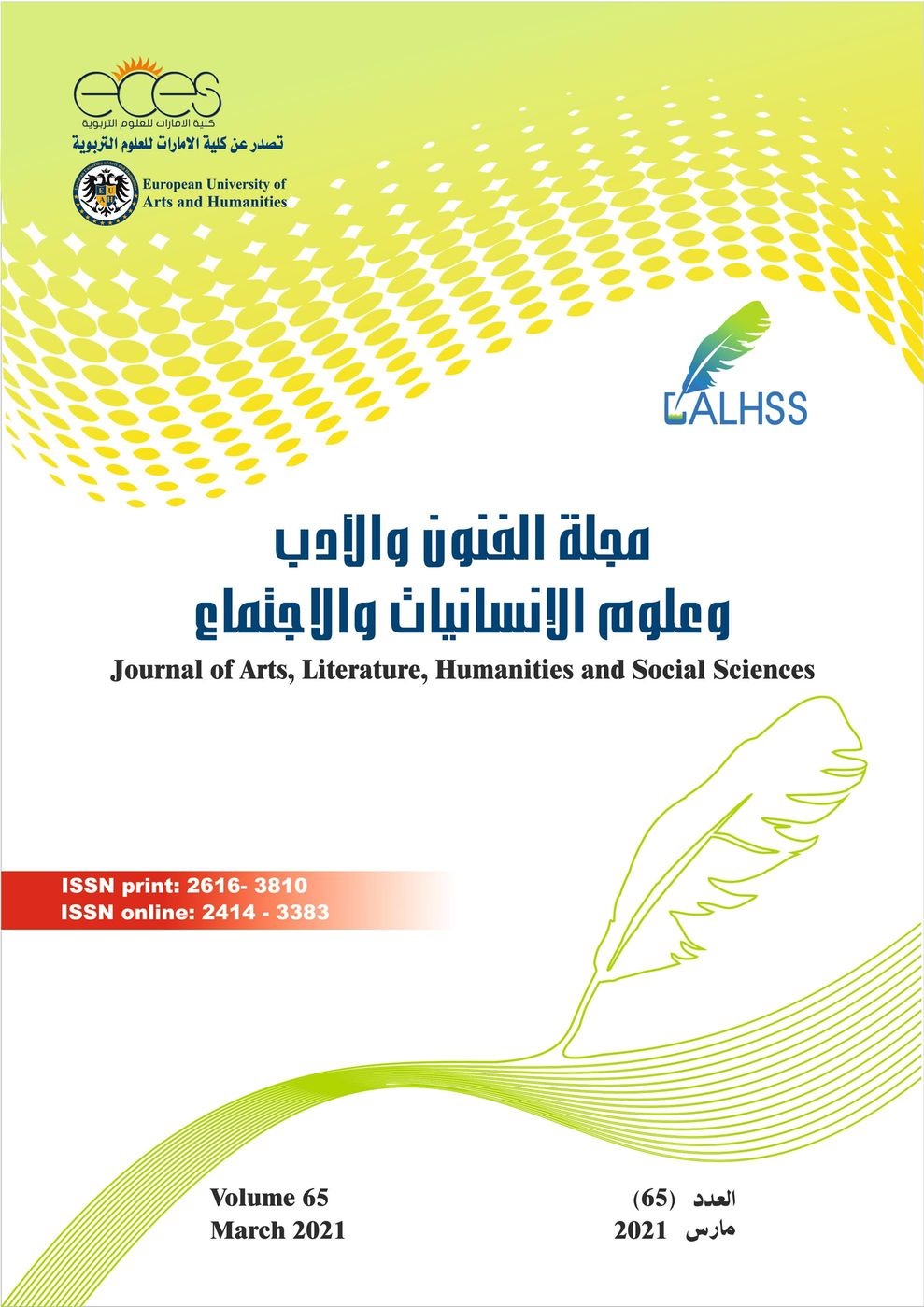The Training Needs of Educational Leaders in Jordanian Private Universities
(An Empirical Study)
الملخص
The present study aimed to explore the training needs of educational leaders in Jordanian private universities from their perspective. The researcher adopted a descriptive analytical approach. He employed a questionnaire and used a program called (the SPSS program) for analysing data. The population is represented in all the educational leaders in Jordanian private universities. The researcher passed 120 questionnaire forms through email to male and female heads of departments, deputies of heads of department, faculty deans, and deputies of faculty deans. However, 112 forms were retrieved and considered valid for analysis. SPSS was used. The researcher found that there is a great need for meeting the targeted administrative, technical and social training needs and IT-related training needs of the educational leaders in Jordanian private universities. The researcher recommends conducting researcher to explore the training needs of educational leaders in various types of educational institutions.
المراجع
2. Al-Hawli, A. (2016). The Training Needs for the Principals of Governmental Schools in Gaza Governorates in the light of developing Human Resources. Published MA thesis. The Islamic University. Gaza. Palestine.
3. Allen J. (2003). A study of the professional development needs of Ohio principals in the area of educational technology. Published PhD dissertation. University of Cincinnati, Cincinnati.
4. Al-Omari, A. (2019). Professional Development of Educational Leaders in General Education Schools in the Kingdom of Saudi Arabia – Mohawk Governorate is a model. Arab Journal of Sciences & Research Publishing, 2(22). DOI: 10.26389/AJSRP.E070618
5. Al-Zahrani, L. (2014). Training needs of the female principals of secondary schools for girls in Makkah from their perspective. Um Al-Qurrah University. Saudi Arabia.
6. Ashraah, A.; Al-Olaimat, A.; and Takash, H. (2015). Training Needs of Governmental Schools’ Principals Hosting Kindergartens Classes: The Case for Jordan. International Education Studies. 8(8). 129-140, doi:10.5539/ies.v8n8p129
7. Brauckmann, S. (2008). The impact of school leadership on school results: Exploring the foundations of a relationship. The proceedings of the annual conference of the European School Heads Association (ESHA), Conditions of School Leadership in Europe, Copenhagen, Denmark.
8. Chris Sangster (2000): Planning and Organizing Personal and Professional Development. 1st edition. United Kingdom. Routledge, ISSN: 1351910930, 9781351910934
9. Fisher, A.; and Carlyon, T. (2014). School leaders growing leadership from within: A framework for the development of school leaders. Waikato Journal of Education. 19(2). 93-102
10. Glover, d. and Law, S. (1996). Managing professional development in education (Issues in Policy and Practice) Sussex: Psychology Press
11. Hallinger, P., & Snidvongs, K. (2008). Educating Leaders: Is There Anything to Learn from Business Management? Educational Management Administration and Leadership, 36(1), 9-39.
12. Hayat, A., Abdollahi, B., Zainabadi, H. R., & Arasteh, H. R. (2015). A study of the professional development needs of Shiraz high schools' principals in the area of educational leadership. Journal of advances in medical education & professionalism, 3(3), 99–104.
13. Hoy, W.K., and Miskel, C.G. (2008). Educational Administration: Theory, Research, and Practice. 8th ed. New York: McGraw-Hill.
14. Ibrahim N. Preparation and development of public secondary schools Principals in Kenya. International Journal of Humanities and Social Science. 2011; 1(9): 291.
15. Kegan, R. & Lahey, L. (2000). Seven Discourses for Development. San Francisco: Jossey-Bass
16. Mathibe, I. (2007). The professional development of school principals. South African Journal of Education. 27(3)523–540 .
17. Ng, S.; and Szeto, S. (2015). Preparing school leaders: The professional development needs of newly appointed principals. Educational Management Administration & Leadership. 44(4).p.540-557
18. Ng, S. (2013). Equipping Aspiring Principals for the Principalship in Hong Kong. Educational Management Administration & Leadership..41(3). 272-288
19. Onuma, N. (2017). In-Service Training Needs of School Principals in Instructional Supervision for Teachers in Public Secondary Schools in Nigeria. International Journal of Humanities Social Sciences and Education (IJHSSE), 4(5), 91-98, http://dx.doi.org/10.20431/2349-0381.0405011
20. Pashiardis P, and Brauckmann S. (2009). Professional development needs of school principals. Commonwealth Education Partnerships. ; 3:120–4
21. Rayner, S, Gunter, H. & Powers, S. (2002). Professional Development Needs for Leaders in Special Education, Journal of In-service Education, 28:1, 79-94, DOI: 10.1080/13674580200200172
22. Salazar, S. (2007). The Professional Development Needs of Rural High School Principals: A Seven-state Study. The Rural Educator; 28(3): 20–7
23. Salehi, M., & Farhang, A. (2019). On the adequacy of the experimental approach to construct validation: the case of advertising literacy. Heliyon, 5(5). Retrieved from: https://doi.org/10.1016/j.heliyon.2019.e01686
24. Sharaf, A. (2018). Training needs to raise the efficiency of school principals in light of contemporary administrative thought from their point of view. International Journal of Educational & Psychological Studies (EPS). 3(2), 269-291
25. Terry, G. (1999). Principle s of management. In: Van der W esth uizen PC (ed.). Effective Educational Management, 9th impression. Pretoria: Kagiso.
26. Uğur, N.G. & Koç., T. (2019). Leading and Teaching with Technology: School Principals’ Perspective. International Journal of Educational Leadership and Management, 7(1), 42-71. DOI: 10.17583/ijelm.2018.3758
27. Walker, K, Carr-Stewart, S (2006) Beginning principals: Experiences and images of success. International Studies of Educational Administration, 34 (3): 17–36.



